Abstract
Natural selection and random genetic drift are modeled by using diffusion equations for the mean phenotype of a quantitative (polygenic) character in a finite population with two available adaptive zones or ecological niches. When there is appreciable selection, the population is likely to spend a very long time drifting around the peak in its original adaptive zone. With the mean phenotype initially anywhere near the local optimum, the expected time until a shift between phenotypic adaptive peaks increases approximately exponentially with the effective population size. In comparison, the expected duration of intermediate forms in the actual transition between adaptive peaks is extremely short, generally below the level of resolution in the fossil record, and increases approximately logarithmically with the effective population size. The evolutionary dynamics of this model conform to the pattern of current paleontological concepts of morphological "stasis" and "punctuated equilibria."
Full text
PDF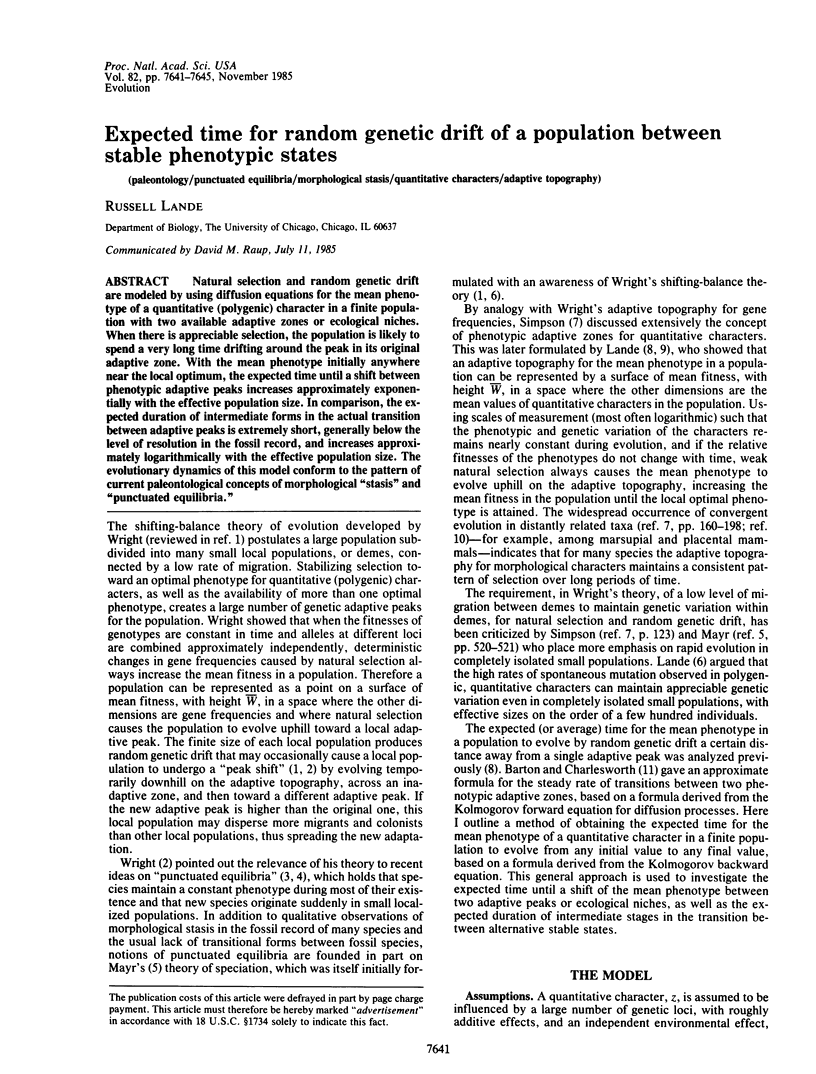
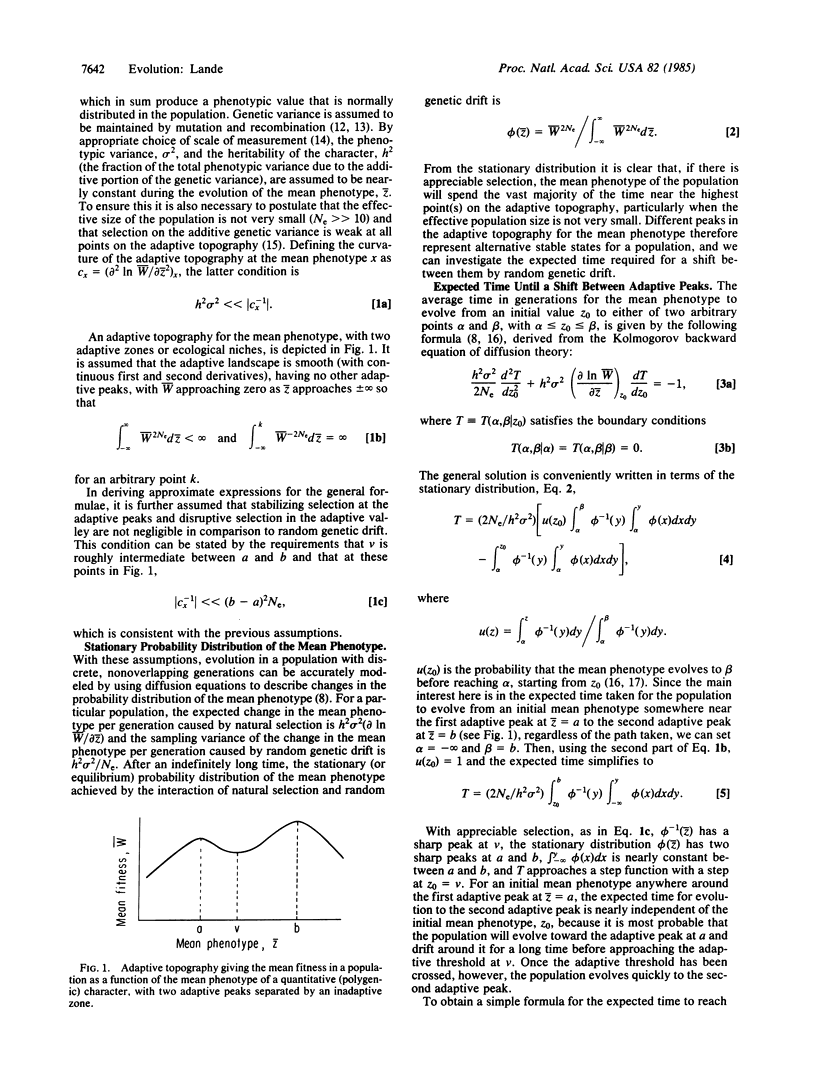
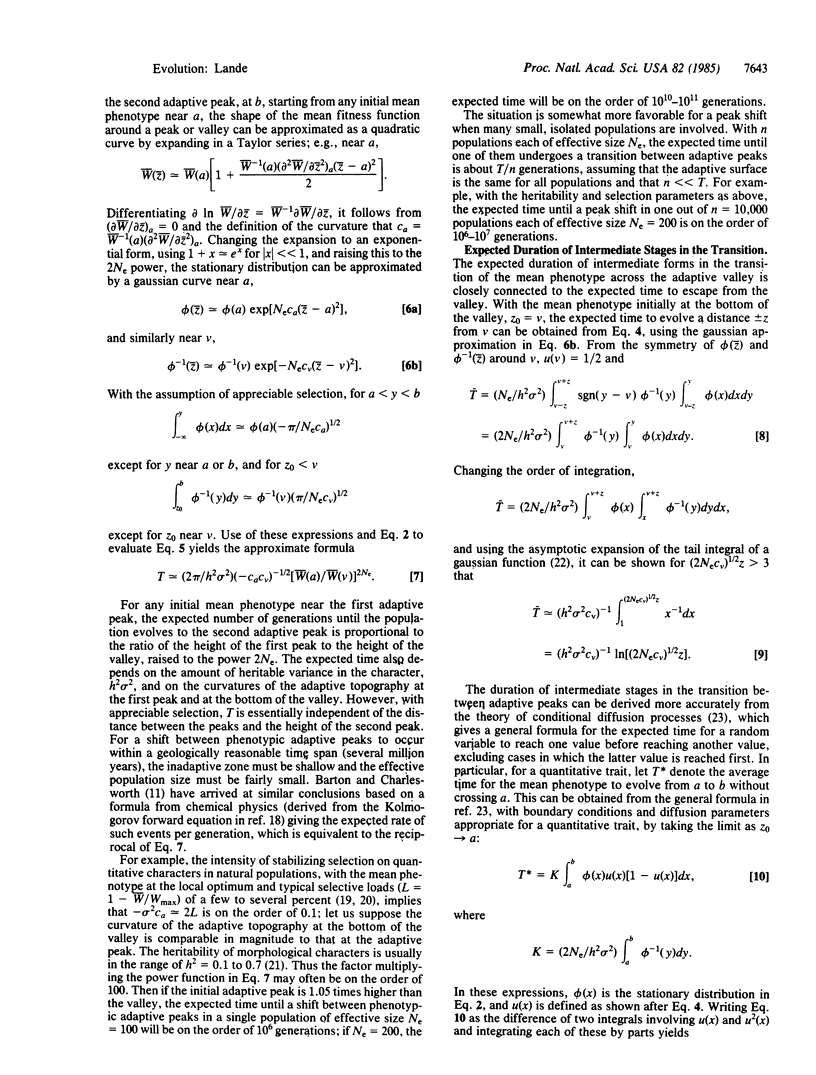
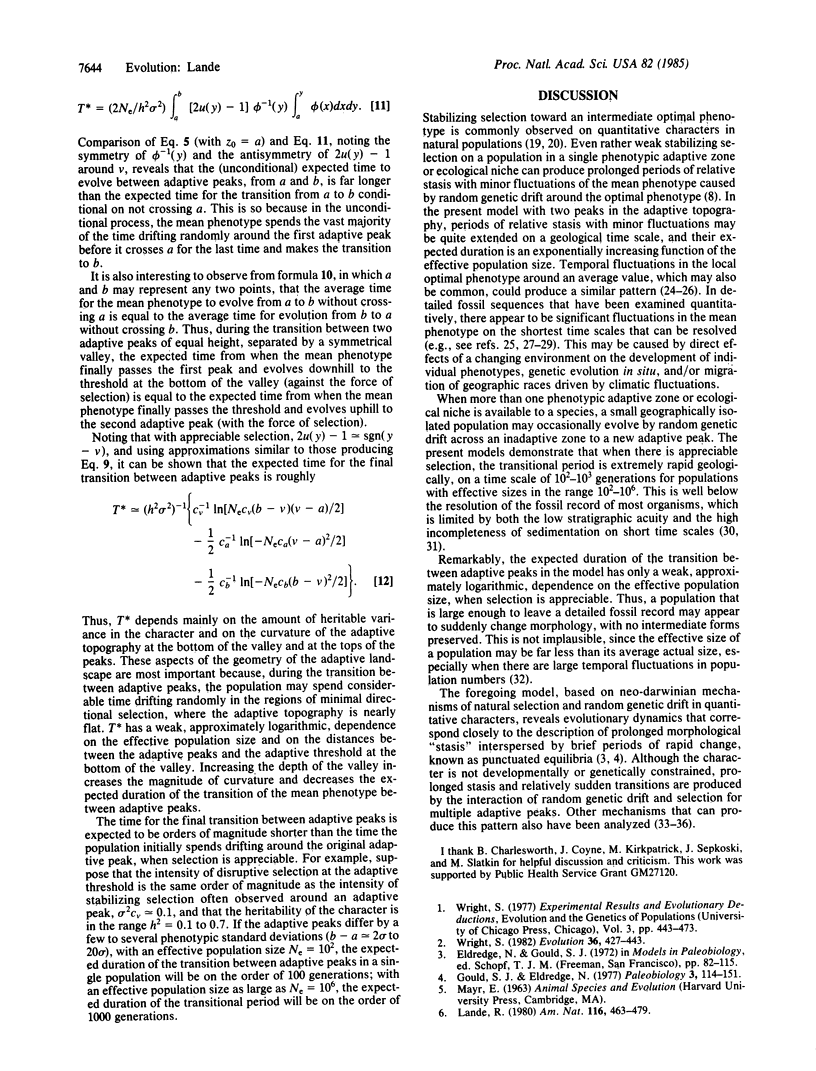
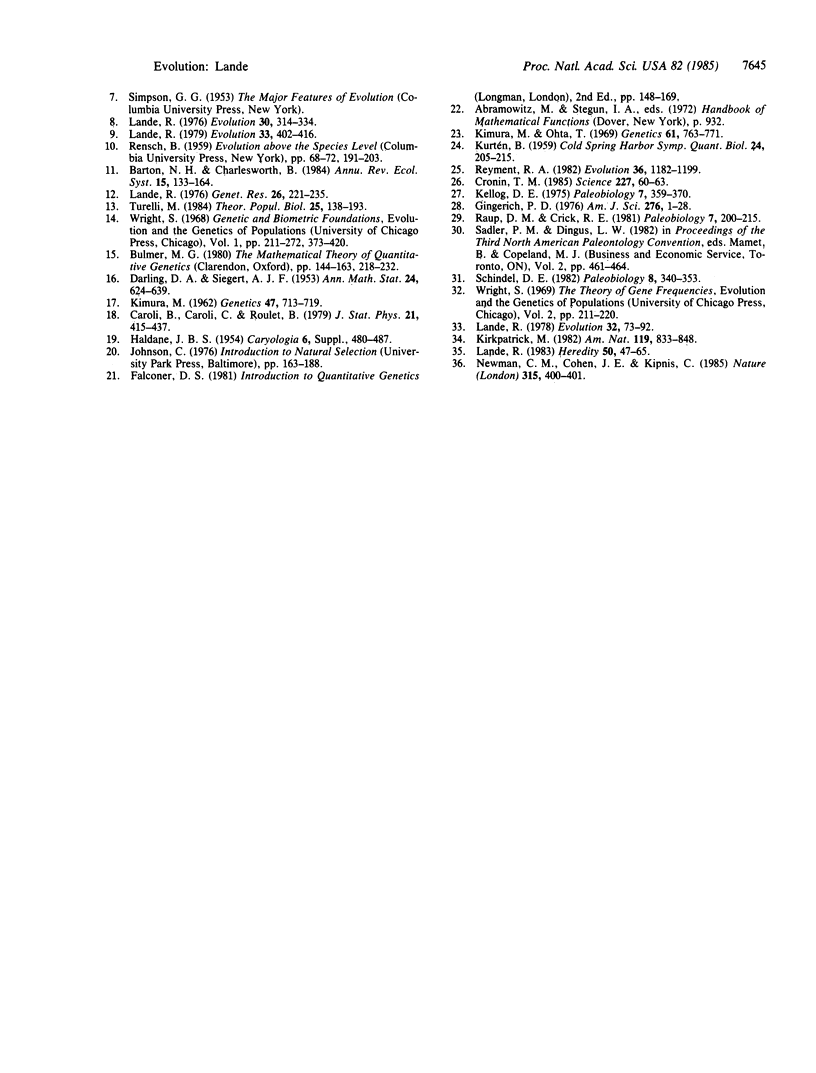
Selected References
These references are in PubMed. This may not be the complete list of references from this article.
- Cronin T. M. Speciation and stasis in marine ostracoda: climatic modulation of evolution. Science. 1985 Jan 4;227(4682):60–63. doi: 10.1126/science.227.4682.60. [DOI] [PubMed] [Google Scholar]
- KIMURA M. On the probability of fixation of mutant genes in a population. Genetics. 1962 Jun;47:713–719. doi: 10.1093/genetics/47.6.713. [DOI] [PMC free article] [PubMed] [Google Scholar]
- Kimura M., Ohta T. The Average Number of Generations until Fixation of a Mutant Gene in a Finite Population. Genetics. 1969 Mar;61(3):763–771. doi: 10.1093/genetics/61.3.763. [DOI] [PMC free article] [PubMed] [Google Scholar]
- Lande R. The maintenance of genetic variability by mutation in a polygenic character with linked loci. Genet Res. 1975 Dec;26(3):221–235. doi: 10.1017/s0016672300016037. [DOI] [PubMed] [Google Scholar]
- Turelli M. Heritable genetic variation via mutation-selection balance: Lerch's zeta meets the abdominal bristle. Theor Popul Biol. 1984 Apr;25(2):138–193. doi: 10.1016/0040-5809(84)90017-0. [DOI] [PubMed] [Google Scholar]



